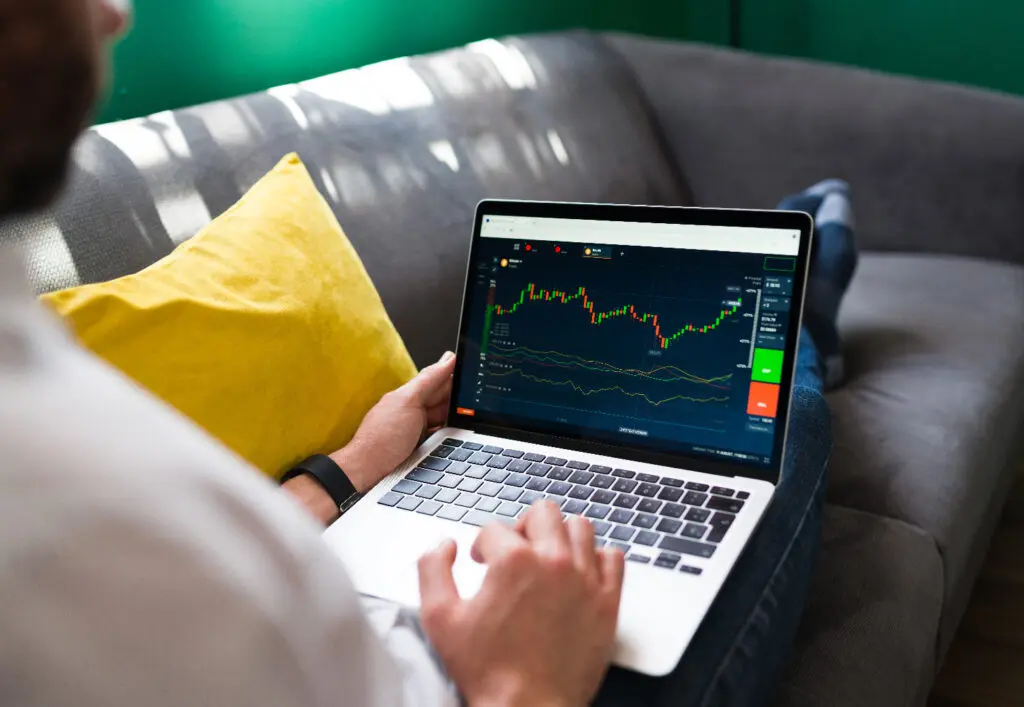
Are you ready to dive into the exhilarating world of proprietary trading? It’s a term you might have heard in financial circles, but what does it really mean? Imagine leveraging a firm’s capital, along with your unique strategies and analytical skills, to generate profits – that’s proprietary trading in a nutshell.
Typically, this type of trading is the realm of professionals or organizations, not usually the domain of individual retail traders. Proprietary trading opens up a host of advantages, like direct investments and profits, access to cutting-edge technology, multiple trading strategies, and a wealth of valuable information. Let’s delve deeper into this fascinating practice and explore its intricacies together.

How Does Proprietary Trading Work?
Proprietary trading refers to financial firms’ trading activities that utilize their capital for their account. This is unlike hedge funds and retail traders that trade on behalf of their clients. Prop traders are in the game to generate profits for their firm and themselves.
Known for their aggressive trading strategies and high-risk speculative investments, prop trading firms are often associated with investment banks, large brokerage firms, and hedge funds looking to make substantial returns. In this article, we’ll break down the workings of proprietary trading and the essential elements that can make a trader successful in this highly competitive field.
The Benefits of Proprietary Trading
Over the years, proprietary trading firms have gained popularity among traders because these firms offer perks that traditional trading environments don’t. For starters, traders at proprietary firms have access to cutting-edge technology and sophisticated trading algorithms, which help them execute trades swiftly and accurately.
Secondly, proprietary firms provide traders with substantial amounts of capital. This allows traders to take larger risks, opening up the potential for greater rewards. Furthermore, proprietary firms act as investors and offer a supportive and collaborative environment where both experienced traders and beginner prop traders can learn from each other and work together to achieve common goals. With these advantages, it’s no wonder proprietary trading companies are an attractive option for traders looking to hone their skills and expand their portfolios in a competitive market.
Factors to Consider When Choosing a Prop Firm
Before you start trading with a proprietary trading firm, consider several factors. One vital aspect is the legal and regulatory framework within which the firm operates. Proprietary trading firms are often subject to various regulations that govern their operations. Therefore, traders must ensure that their chosen firm is registered, licensed, and regulated by the relevant authorities.
It’s important to find reputable prop firms that you can partner with to be a successful prop trader. The reputation of the trading firm is also a key factor, as it can significantly impact your trading experience and success. Make sure you research the firm’s history and customer reviews from other traders to ensure they have a positive track record.
Another essential aspect is the associated fees. Some proprietary firms charge high fees for trading activity, which can reduce your profits. Weigh these costs against the potential benefits of trading with the firm. Also, look at the firm’s growth plan, including strategies for increasing profitability and expanding the business.
This can give you insight into the potential longevity of the trading firm and its commitment to helping traders succeed. These factors play a crucial role in ensuring a successful trading experience while also protecting you from any potential legal or regulatory complications.
Essential Skills for a Proprietary Trader
The recipe for a successful proprietary trader is a blend of self-motivation, risk management skills, discipline, a reliable trading strategy, and astute market research skills. Self-motivation is a critical ingredient in this mix.
Traders need to maintain focus and discipline while working independently, meeting their trading objectives with determination and perseverance. Additionally, strong analytical and decision-making skills are required to facilitate confident, well-informed trades.
Working in the trading sector requires collaboration, as traders interact with other traders, brokers, and clients to design and execute profitable trading strategies. This often requires adapting their style of trading according to market demands and individual trading limits.
Risk management skill is another essential component, as traders need to skillfully manage their exposure to potential losses. This goes hand-in-hand with developing and implementing a reliable trading strategy that is responsive to market fluctuations and anticipates possible risks.
A trader’s ability to conduct thorough market research is also fundamental in identifying market trends and opportunities, providing them with a competitive edge. This involves access to training in understanding financial markets, mathematical concepts, and knowledge of trading software and platforms.
However, these skills and abilities are part of a continual evaluation process to have a successful trading day. The genuinely successful trader can assess their performance, learn from their mistakes, and consistently strive for improvement. And let’s not forget the end goal, a satisfying profit payout that rewards all the hard work and dedication.
Understanding the Pay Structure
Prop firms use various pay structures to incentivize their traders. These structures can range from fixed salaries to performance-based compensation. Boutique firms typically use a “flat profit split” or a “tiered profit split” model. In a flat profit split, the firm takes a percentage of the profits generated by the trader. This percentage typically ranges from 20% to 50%.
For instance, if a trader generates $100,000 in profits and the firm takes a 30% cut, the trader receives $70,000, and the firm receives $30,000. In a tiered profit split, the firm takes a lower percentage of the profits up to a certain threshold and a higher percentage beyond that threshold. For example, a firm may take 20% of profits up to $100,000 and 30% of profits beyond $100,000. Traders’ earnings depend on their trading proficiency and ability to generate profits.
Getting Started as a Prop Trader
Ready to leap into evaluation trading? Your first step is to select a reputable evaluation firm that suits your trading style and risk appetite. It’s time to introduce you to Rocket21, a leader in the field, offering a unique opportunity to aspiring traders. To get started with Rocket21, you’ll need to buy and successfully pass a simulated challenge provided on their platform. This challenge is a great way to demonstrate your trading skills, and ability to strategize, and manage risk, all in a simulated trading environment.
This isn’t just any type of simulated challenge, though. It’s an opportunity to show Rocket21 that you’ve got what it takes to be a professional trader. Successful completion of the simulated challenge signifies your readiness to handle real trading situations and manage a larger virtually funded demo account. Once you’ve passed the simulated challenge, you’re in! You can start trading with Rocket21 and begin your journey toward financial growth. Rocket21 offers simulated traders access to significantly higher virtual capital, ongoing training, and a supportive trading community through our discord.
For more insights and trading tips, be sure to explore content on Rock Medium page, where you’ll find additional resources to guide you in building a successful proprietary trading career.
DISCLAIMER:
Financial instrument trading, including simulated trading activities in a simulated environment referenced by or undertaken utilizing Rocket21, may involve substantial risk of loss and is not suitable for every Person. The valuation of financial instruments including simulated valuations, such as simulated foreign exchange contracts, simulated futures and simulated options, may be highly volatile and fluctuate significantly and as a result, clients may lose or gain more than their initial demo trade order. The impact of seasonal and geopolitical events may be already factored into simulated market prices. The highly leveraged nature of trading, including simulated trading, means that even small price movements may have a great impact on a demo trading account, potentially resulting in substantial simulated losses or gains. Rocket21 does not offer or provide trading or investment recommendations, and any trading or investment decisions you make are entirely your responsibility and at your own risk. Past performance is not necessarily indicative of future results. Performance quoted represents past performance in a simulated environment and does not guarantee current or future performance or that losses will not occur. The accounts and trading activities discussed in this video are purely simulated and for educational purposes. Any trading objectives, including profit targets, drawdown limits, profit splits, allocation, and other related metrics, are virtual and not associated with real financial transactions and actual trading.
BANNER PROMO HERE
REGISTER NOW
JOIN OUR TEAM OF
ROCKET TRADERS
ACCEPT OUR ROCKET CHALLENGE AND BECOME A ROCKET TRADER IF YOU ARE READY. YOU CAN EVEN GO THROUGH THE ENTIRE PROCEDURE FOR FREE

